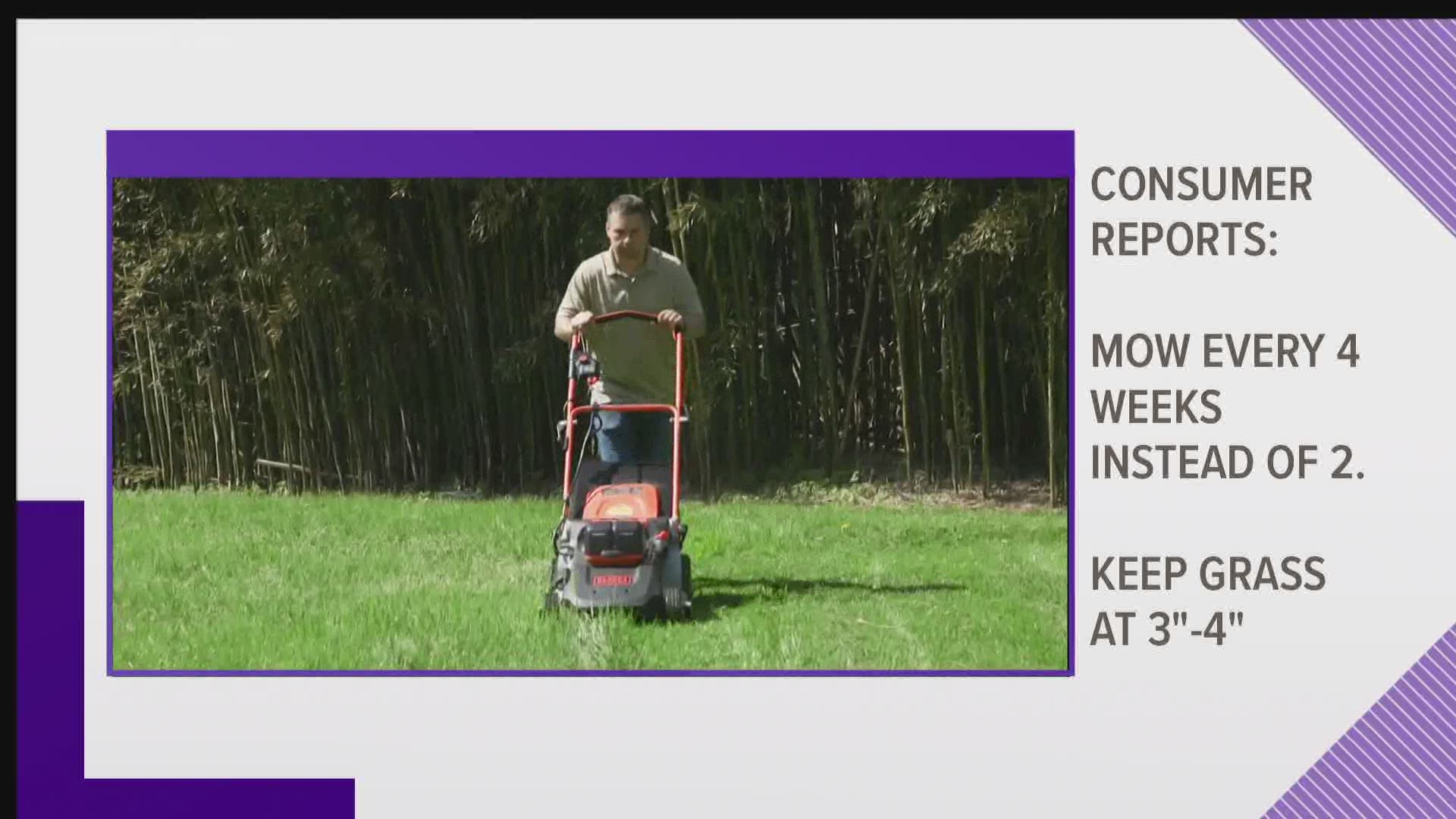GREENSBORO, N.C. — Many people are rethinking how they care for their yard by cutting back on lawn chemicals and fertilizers. And there's a push for 'No Mow May'.
According to Gardens Illustrated, mowing fewer times cuts down on your pollen count because you're not stirring up all the weeds and things.
Also, not mowing can increase the amount of nectar available to bees and other pollinators, which in turn, is good for the food cycle.
"It may seem counterintuitive but cut back on watering your lawn. Watering less will encourage the grass to grow deeper roots and develop resistance to drought. And because watering at night can actually promote fungus, water only during the early morning," said Catherine Roberts, Ph.D., Consumer Reports Health Editor.
And while it gets a bad rap, clover is especially good for your lawn. It adds nitrogen and keeps other weeds at bay.
When it’s time to mow, CR’s lawn-care experts advise you keep the grass a little taller, about 3 or 4 inches. Keep the blades on your mower sharp and use the mulching mode, which will cut the grass into fine clippings and deposit them back into the soil. Grass clippings actually contain many of the same nutrients found in chemical-based fertilizers.
What’s more, Consumer Reports says research has linked many lawn chemicals, even at low levels, to potential health problems.
You can track pesticides into your home from the lawn, where they can get into the dust on your floor and your carpet. Children could be exposed to that.
Several common lawn pesticides are suspected to be linked to a variety of conditions like diabetes, and reproductive and developmental problems.
And lawn chemicals don’t always stay on your lawn. Fertilizers can be a source of water pollution, sometimes sinking deep into the soil and into local waterways or groundwater.
The pesticide and fertilizer industry maintains that the Environmental Protection Agency’sbapproval of existing lawn pesticides means the chemicals should be safe to use as directed on the label. But many safety advocates say the EPA’s testing requirements are outdated. Standard EPA tests don’t reflect the latest in toxicological sciences. Therefore, some significant effects of pesticides can go undetected.

